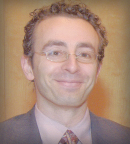
Joshua Brody, MD
Joshua Brody, MD, Director of the CLL/Lymphoma Immunotherapy Program, Icahn School of Medicine at Mount Sinai, New York, who was not involved in these trials, commented: “CLL is an extremely prevalent disease affecting nearly 200,000 patients in the United States. Most patient do not require therapy initially, but eventually the leukemia usually progresses, requiring therapy. In 2010, the mainstay therapies were chemotherapy, but over the past decade, several new targeted therapies have emerged that are taken as pills, highly effective, and in most ways, safer than chemotherapies. Foremost among them are inhibitors of two proteins in CLL cells: Bruton’s tyrosine kinase (BTK) and BCL2. These two types of targeted therapies are, most commonly, taken continuously—just like cholesterol or blood pressure medicine—and can keep patients in remission for many years.”
“However, newer studies, such as those presented at the 2021 ASH Annual Meeting & Exposition by Paolo Ghia, MD, PhD, and Talha Munir, MBBS, have tested taking a combination of BTK and BCL2 inhibitors, demonstrating that most patients develop deep remissions [measurable residual disease]. And, even if therapy is paused after 1 year, the vast majority of patients remain in remission 2 years later, and these results are markedly superior to those with standard chemotherapies that are still used,” Dr. Brody continued.
“The takeaway is that this ‘doublet-targeted therapy’ may become an approved standard approach in the near future. It would allow most patients to receive time-limited, chemotherapy-free regimens and remain in remission for, potentially, many years,” Dr. Brody said.
DISCLOSURE: Dr. Brody reported no conflicts of interest.

